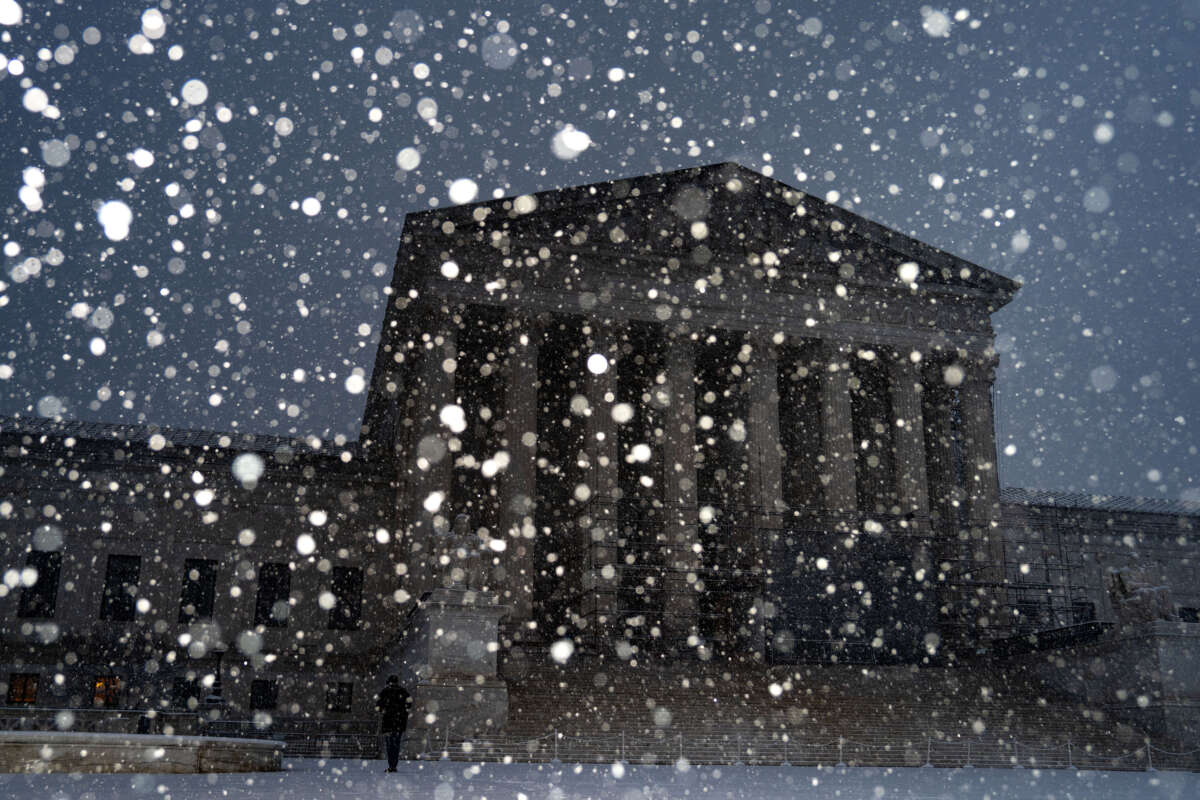Did you know that Truthout is a nonprofit and independently funded by readers like you? If you value what we do, please support our work with a donation.
On Wednesday night, the United States Supreme Court placed a temporary hold on a lower court’s directive that had ordered the Trump administration to restore around $2 billion in funding to foreign aid contractors.
The Trump White House had blocked access to the funds in a day-one action by the president. Nonprofit organizations that were supposed to receive the money, which had been allocated by previously passed federal law, sued to have the funds released to them, and U.S. District Judge Amir Ali ruled earlier this month that they were entitled to having the payments restored.
However, the administration failed to provide those funds even after that order was given. On Tuesday, Ali convened a hearing between the groups and Department of Justice lawyers, who couldn’t explain why they hadn’t followed his initial temporary restraining order (TRO).
“Twelve days into the TRO, you can’t give me any facts about funds being unfrozen under the TRO?” Ali said during the hearing.
At the conclusion of the hearing, Ali ordered that the White House had until midnight on Wednesday to provide the funds to the organizations. The administration filed an emergency appeal to the Supreme Court, after which Chief Justice John Roberts placed an “administrative stay” on Ali’s order.
The stay is not necessarily indicative of how the court will rule, but rather gives both parties, as well as the court itself, a few more days to file briefs and determine what should happen next.
Roberts ordered the groups demanding the funds that are owed to them to file briefs to the Supreme Court outlining their reasoning by Friday. A decision from the court could come within a few days, although no definitive timeline has been given.
In addition to its filing seeking to block the lower court’s order, the Trump administration on Wednesday announced it is eliminating 90 percent of the U.S. Agency for International Development’s (USAID) foreign aid contracts, and ending $60 billion in global assistance provided by the U.S. to contractors around the globe. Sen. Chris Murphy (D-Connecticut) blasted the action by the White House.
“The administration is brazenly attempting to blow through Congress and the courts by announcing the completion of their sham ‘review’ of foreign aid and the immediate termination of thousands of aid programs all over the world,” said Murphy.
Steve Vladeck, a law professor at Georgetown University, said in a Substack post on Thursday that Roberts’s order doesn’t give any real insight into whether justices will ultimately agree with the lower court’s ruling or allow the Trump White House to upend the funding of USAID contracts.
“All that Roberts has done is buy the full Court a little bit of time to sort out whether the government should be allowed to appeal Judge Ali’s February 25 order; and that order should be paused during that appeal,” Vladeck wrote.
However, even that two-day delay is troubling, Vladeck recognized.
“The spending cut-off is already causing significant, and in at least some cases, irreparable harm on the ground,” he wrote. “Thus, even a temporary pause in Judge Ali’s order exacerbates that harm. And at the most superficial level, it seems obvious that the Trump administration should ultimately lose these cases — that it lacks the power to simply stop spending money Congress has appropriated, and to stop payments on money that is already obligated.”
Press freedom is under attack
As Trump cracks down on political speech, independent media is increasingly necessary.
Truthout produces reporting you won’t see in the mainstream: journalism from the frontlines of global conflict, interviews with grassroots movement leaders, high-quality legal analysis and more.
Our work is possible thanks to reader support. Help Truthout catalyze change and social justice — make a tax-deductible monthly or one-time donation today.
